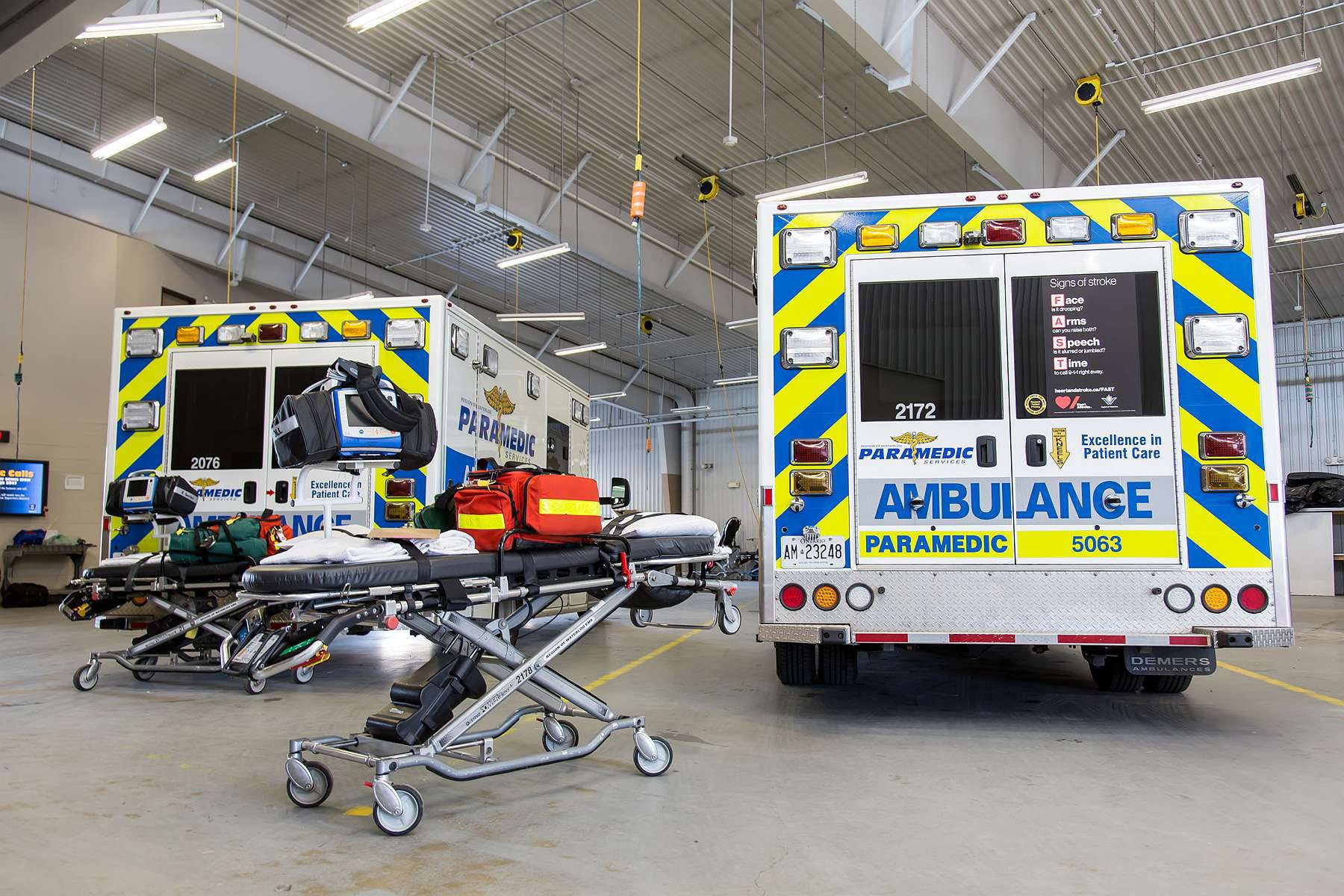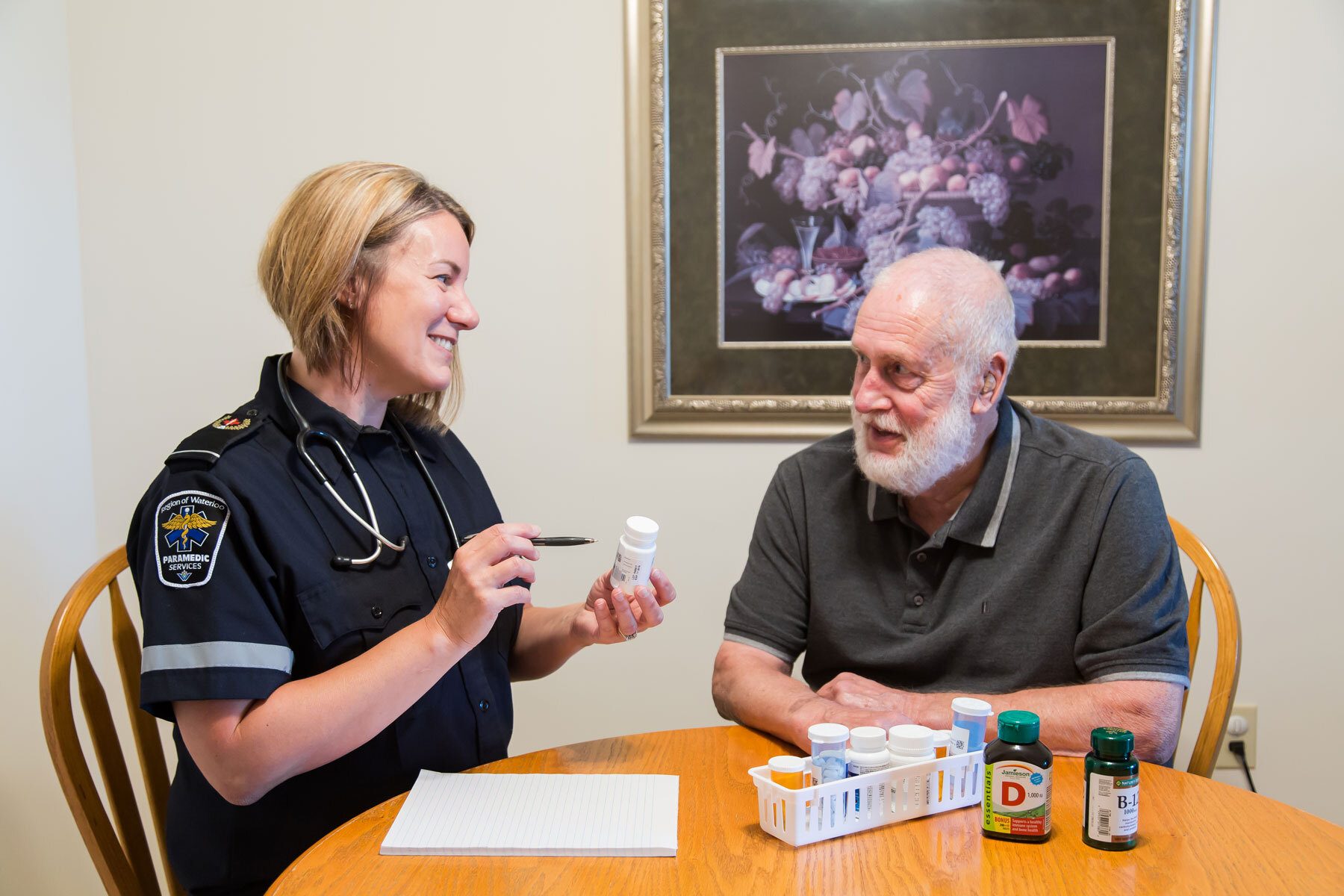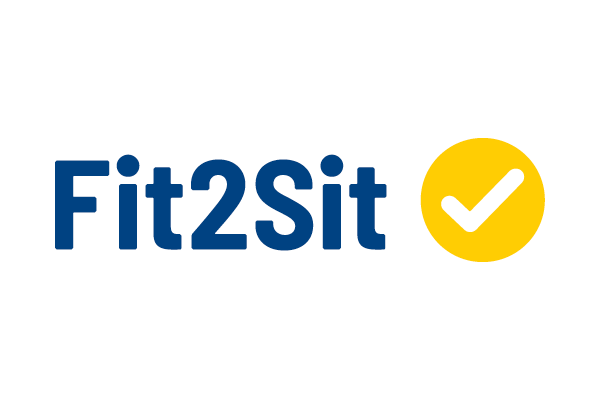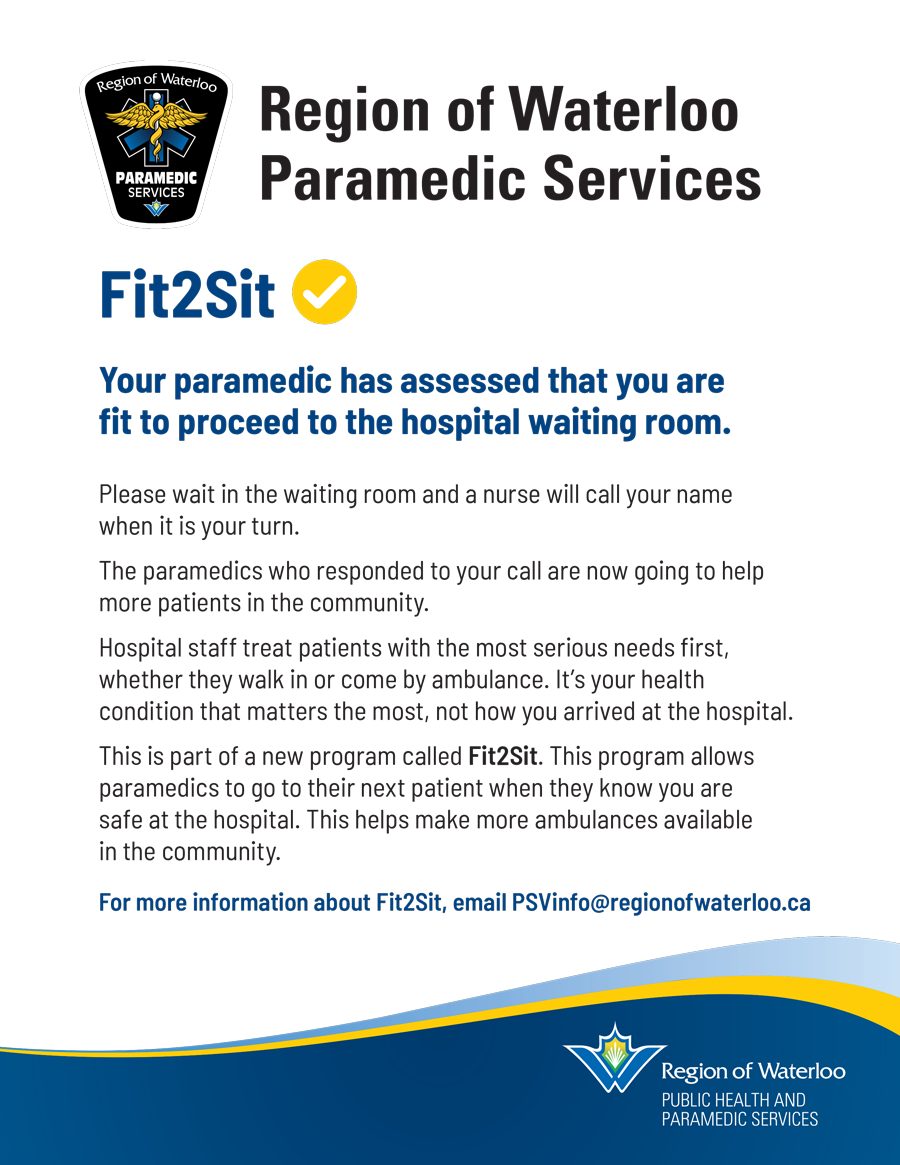
Paramedics’ innovative solutions to ensure timely patient care
Ensuring the community has access to timely and appropriate medical care is a top priority for Region of Waterloo paramedics

In 2023, Paramedic Services added four new ambulances and hired 20 new paramedics to ensure residents in this growing community continue to receive excellent care.
But keeping paramedics on the road isn’t the only work being done to meet the needs of our region’s aging and growing population. Paramedic Services leaders have been working with the province and local partners to reimagine how services are delivered. A variety of creative solutions have been implemented to connect patients with the care they need in a timely way.


Designated offload nursing program
In partnership with the region’s three hospitals, Region of Waterloo Paramedics was awarded $1,694,000 in provincial funding to continue to grow and implement the Designated Offload Nursing Programs.
Designated offload nurses focus on the successful transfer of patients from paramedics to the hospital emergency departments. The program is intended to free up ambulances and paramedics to return to communities as soon as possible to provide more people with access to timely emergency care.
This one-time funding supports an increase of designated offload nurse coverage in each of the three regional hospital’s emergency departments to 24 hours a day, seven days a week until March 31, 2024.
Fit2Sit
A Fit2Sit program was implemented in partnership with local hospitals in fall 2023. Fit2Sit places eligible patients directly in emergency room waiting rooms after paramedics have determined their condition is stable enough that they can wait for hospital care without paramedic assistance. Once the patient has been designated as Fit2Sit, the paramedics can then return to the road for their next call.
555 patients have qualified for Fit2Sit since the program was implemented on September 15, 2023.
555
Treat and discharge
As of December 1, 2023, Region of Waterloo Paramedics can treat patients on-scene for certain conditions. Paramedics who have received special treat and discharge training can use this new patient care model in appropriate situations when responding to seizures, hypoglycemia (low blood sugar) and tachydysrhythmia (heartbeat rate of more than 100 best per minute).
If a patient meets the appropriate conditions, the paramedic can attend to their needs and provide a recommendation to the patient for follow-up care. This keeps lower-risk patients out of the hospital and allows paramedics to return to the road.

Community paramedicine
The community paramedicine program assists people living with chronic illness or ongoing health needs, who may otherwise not have easy access to health care support. The program helps to address the health needs of residents in their homes, outside of the emergency system.

Specially trained community paramedics visit individuals who are registered with the program for scheduled checkups, health assessments and in-home safety assessments. They can help patients connect with appropriate community services.
The community paramedicine program also provides palliative care services to individuals registered with Home and Community Care Services Waterloo Wellington.
Number of program clients for 2023:
230
230 Community paramedicine clients
398
398 Paramedics providing palliative care
Creating pathways to patient care outside of the emergency room
Alternate destinations are health care locations where eligible patients may be brought by paramedics for their treatment. These locations can best support the unique needs of these individuals and help divert patients away from hospital emergency rooms. Region of Waterloo Paramedic Services is working closely with partners across the community to develop alternate destination pathways for those needing support with mental health and addiction concerns, and palliative patients requiring hospice care.
Hospice care
The Ministry of Health approved Region of Waterloo Paramedic Services to provide alternate destination services for eligible palliative care and end-of-life patients in August 2023. This means if a patient registered with a local hospice calls 911, the paramedics will be alerted to this. They will assess if it is beneficial for the patient to be transported to hospice instead of to the hospital. This initiative will launch in 2024 and supports the commitment to providing the right care in the right place for patients.
Mental health and addiction clinics
In spring 2023, Paramedic Services participated in a pilot Community Mental Health and Addictions Clinic at Cambridge Memorial Hospital. The pilot was run by the Cambridge North Dumfries Ontario Health Team and helped divert 23 people from the emergency department to the clinic, where they received patient focused care.
Paramedic Services is supporting the work to build permanent mental health and addiction clinics in both Cambridge and Kitchener-Waterloo. Upon Ministry of Health approval, these clinics can serve as alternate destinations for eligible patients. For more information on this work visit the Alternate Destination Clinics for Mental Health and Addiction Engage page.









